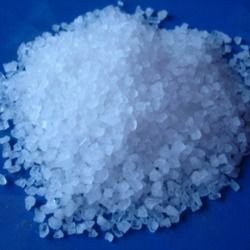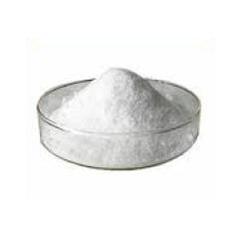Pure Sodium Pyrophosphate
Product Details:
- Shelf Life 12 Months
- Physical Form Powder
- Shape Crystal
- Usage Laboratory
- Storage Room Temperature
- Product Type Sodium Pyrophosphate
- Appearance white, crystalline powder or granules.
- Click to View more
X
Pure Sodium Pyrophosphate Price And Quantity
- 50 Kilograms
Pure Sodium Pyrophosphate Product Specifications
- Soluble In Water.
- Powder
- 12 Months
- Crystal
- Laboratory
- Room Temperature
- Technical Grade
- Sodium Pyrophosphate
- white, crystalline powder or granules.
- Na2H2P2O7
Pure Sodium Pyrophosphate Trade Information
- 100 Kilograms Per Day
- 7 Days
Product Description
Sodium pyrophosphate refers to a class of inorganic compounds that contain the pyrophosphate ion (P2O74-). These compounds are salts of pyrophosphoric acid, which has the chemical formula H4P2O7. Sodium pyrophosphate can exist in various forms, and one common variant is disodium pyrophosphate (Na2H2P2O7).
# Sodium Pyrophosphate Properties:
Sodium pyrophosphate, with the chemical formula Na2H2P2O7, possesses several properties that make it useful in various applications. Here are some key properties of sodium pyrophosphate:
1. Physical State and Appearance:
- Sodium pyrophosphate is typically found in the form of a white, crystalline powder or granules.
- The exact appearance can depend on the specific form or hydrate of sodium pyrophosphate.
2. Solubility:
- Sodium pyrophosphate is soluble in water. When dissolved in water, it forms a clear solution.
3. pH:
- The solution of sodium pyrophosphate in water tends to be alkaline, contributing to its buffering properties.
4. Hygroscopicity:
- Some forms of sodium pyrophosphate may exhibit hygroscopic properties, meaning they have the ability to absorb moisture from the air.
5. Chemical Stability:
- Sodium pyrophosphate is generally stable under normal conditions. However, its stability can be influenced by factors such as temperature and exposure to incompatible substances.
6. Ionic Nature:
- Sodium pyrophosphate contains sodium ions (Na+) and the pyrophosphate ion (P2O74-). The pyrophosphate ion consists of two phosphate groups linked by an oxygen bridge.
# Uses of Sodium Pyrophosphate:
Sodium pyrophosphate has several uses in various industries due to its properties as a buffering agent, emulsifier, and stabilizer. Here are some common uses:
1. Food Industry:
- Buffering Agent: Sodium pyrophosphate is used in the food industry as a buffering agent to control and adjust the pH of processed foods. It helps maintain the acidity or alkalinity of the food product.
- Emulsifier and Stabilizer: It functions as an emulsifier and stabilizer in certain food formulations, particularly in products like processed meats, where it can improve texture and stability.
2. Water Treatment:
- Sodium pyrophosphate is employed in water treatment processes. It can act as a sequestrant, helping to control the levels of metal ions in water. This property is useful in preventing the formation of scale or precipitates in water systems.
3. Detergents and Cleaning Products:
- In the detergent industry, sodium pyrophosphate is used as a builder. It helps enhance the cleaning efficiency of detergents by sequestering calcium and magnesium ions, which can interfere with the cleaning process.
4. Industrial Applications:
- Sodium pyrophosphate can be used as a dispersing agent in various industrial applications. It helps disperse solid particles in liquids, preventing them from settling or clumping together.
5. Corrosion Inhibitor:
- In some applications, sodium pyrophosphate is used as a corrosion inhibitor to protect metal surfaces from corrosion.
6. Photography:
- In the field of photography, sodium pyrophosphate is used in the preparation of certain developers.
7. Laboratory Applications:
- Sodium pyrophosphate is used in laboratory settings for various purposes, including biochemical and molecular biology experiments.
8. Textile Industry:
- It may find application in the textile industry, where it can be used in dyeing processes.
9. Adhesives and Sealants:
- In certain formulations of adhesives and sealants, sodium pyrophosphate may be included to provide specific properties.
FAQs of Pure Sodium Pyrophosphate:
Q: What is the appearance of Pure Sodium Pyrophosphate?
A: Pure Sodium Pyrophosphate appears as white, crystalline powder or granules.Q: What is the shelf life of Pure Sodium Pyrophosphate?
A: The shelf life of Pure Sodium Pyrophosphate is 12 months.Q: What is the molecular formula of Pure Sodium Pyrophosphate?
A: The molecular formula of Pure Sodium Pyrophosphate is Na2H2P2O7.Q: What is the solubility of Pure Sodium Pyrophosphate?
A: Pure Sodium Pyrophosphate is soluble in water.Q: What is the recommended storage condition for Pure Sodium Pyrophosphate?
A: Pure Sodium Pyrophosphate should be stored at room temperature.Q: What is the grade of Pure Sodium Pyrophosphate?
A: Pure Sodium Pyrophosphate is of Technical Grade.Q: What is the physical form of Pure Sodium Pyrophosphate?
A: Pure Sodium Pyrophosphate is in powder form.Tell us about your requirement

Price:
Quantity
Select Unit
- 50
- 100
- 200
- 250
- 500
- 1000+
Additional detail
Mobile number
Email








